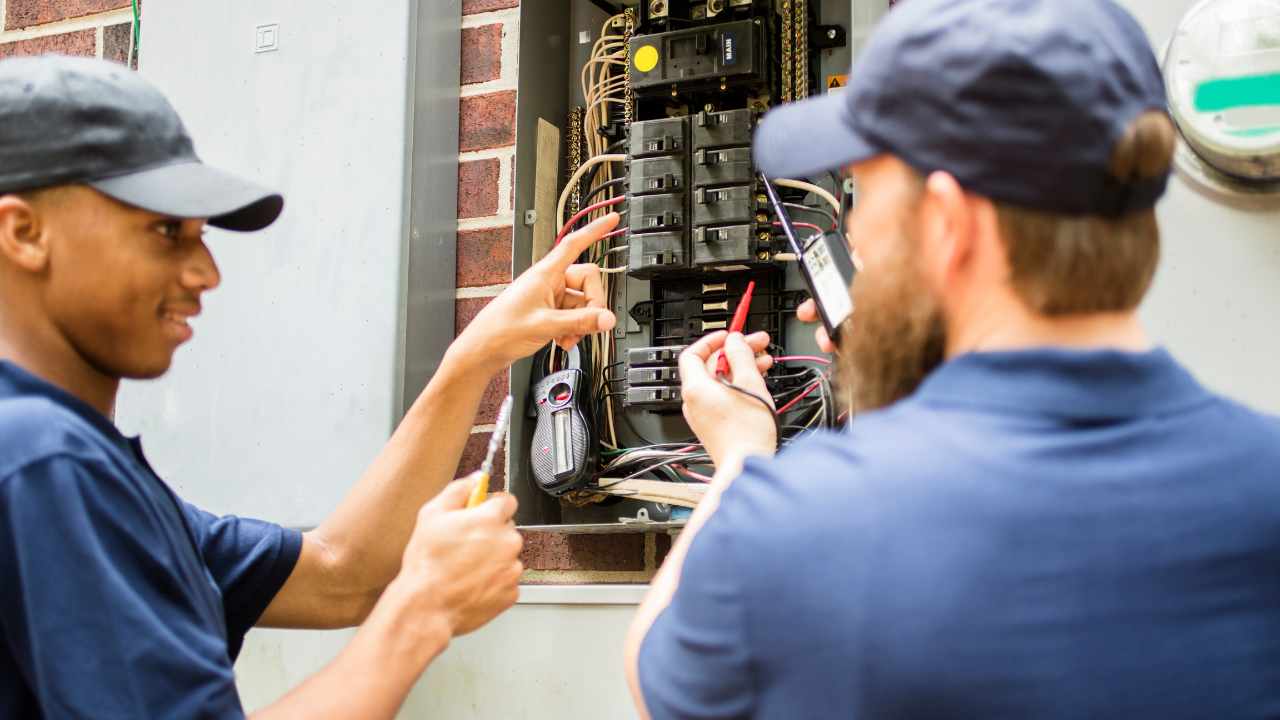Thinking about updating your home’s electrical system but not sure where to start? Rewiring is a big task that can make your property safer, more efficient, and ready for modern living.
It’s important to understand what the process involves before any work begins.
In this blog, we will explore how to prepare your home for a rewiring project, from spotting the early signs to planning, hiring professionals, and minimising disruption. With the right approach, you can make the whole experience smoother and stress-free.
Let’s start!
How Can You Spot the Signs That Your Home Needs Rewiring?
Knowing when to rewire your home can help you prevent electrical risks and future repair costs. Recognising the early signs will make it easier to decide how to prepare your home for a rewiring project safely and efficiently.
Frequent Electrical Issues
If your lights flicker often or circuit breakers trip repeatedly, it may be a sign that your wiring can’t handle modern electrical loads. Older systems tend to become overloaded as new devices are added. A professional check can confirm whether a full rewiring is needed.
Outdated Wiring
Homes built several decades ago might still have wiring that doesn’t meet today’s safety standards. Materials like aluminium or knob-and-tube wiring can be unreliable and unsafe. Replacing them improves both safety and energy efficiency.
Burning Smells or Sparking Outlets
If you notice sparks or a faint burning smell near plugs or switches, this could mean your wiring is overheating. These signs should never be ignored, as they indicate serious electrical faults. Turn off power and contact a qualified electrician immediately.
Warm or Discoloured Outlets and Switches
When outlets or switches feel hot or appear brownish, it could signal overheating wires behind the surface. This may happen due to loose connections or damaged insulation. Getting it inspected early can prevent fire hazards.
Safety Hazards
Frayed insulation, exposed wires, or flickering lights are all warnings that your electrical system is ageing. Ignoring these problems increases the risk of shock or fire. An electrician can help assess whether rewiring is the best solution.
Lack of Grounded Outlets
Modern homes use grounded outlets to prevent electrical shocks and protect appliances. If your property still has two-prong sockets, it’s time to upgrade. Grounding is a key feature in rewiring that brings your system up to current standards.
Planning Home Renovation

If you’re remodelling or extending your home, it’s wise to review your electrical system first. Rewiring during renovation avoids the need for later disruption. It’s also a good chance to add more outlets or lighting where needed.
How To Prepare Your Home For a Rewiring Project?
Before any work begins, it’s important to outline the details of your rewiring project. A clear plan helps you stay within budget and avoid delays once the job starts.
Determine the Extent
Think about whether you need a full house rewiring or only certain rooms like the kitchen or extension. Focusing on specific areas can reduce costs while still improving safety. Understanding the scale of work helps you plan more effectively.
Materials
Choose wiring that meets safety standards and lasts for years. Copper is often preferred because it’s reliable and durable. Discuss material options with your electrician to find the best fit for your home.
Planning Your Electrical Layout
If you’re updating your home or adding new rooms, plan your electrical layout early. Consider where you’ll need sockets, lights, and appliances. This helps create a system that meets both your current and future needs.
Permits and Regulations
Contact your local council or building authority to check which permits you’ll need. Electrical work must follow local safety codes to pass inspection. Sorting this out early avoids legal or compliance issues later.
Budgeting
Prepare a clear budget that includes materials, labour, and extra costs for unexpected changes. Getting estimates from different electricians can help you understand realistic pricing. A well-planned budget keeps your project on track from start to finish.
How To Reduce Disruption During Rewiring?
Electrical work can interrupt your daily routine, especially if it involves the whole house. With a bit of planning, you can keep inconvenience to a minimum and stay comfortable throughout the process.
Plan Accommodations
If your entire property is being rewired, consider staying somewhere else temporarily. This keeps you away from noise, dust, and limited power access. Planning early ensures you’re not caught off guard when work begins.
Coordinate with Electricians

Have regular discussions with your electricians about their schedule and progress. Knowing which rooms will be unavailable helps you plan your day better. Good communication also prevents unnecessary delays or confusion.
Prepare for Dust and Debris
Rewiring often involves drilling and cutting, which can create a mess. Cover furniture, seal off rooms if possible, and move valuables to a safe space. Taking these steps will make the clean-up much easier once the project is done.
Keep Children and Pets Safe
During electrical work, wires, tools, and open wall spaces can pose safety risks. Keep children and pets away from active work areas at all times. This keeps everyone safe and helps electricians work more efficiently.
Conclusion
Rewiring your home is a major project that improves safety, efficiency, and long-term value. By understanding when rewiring is needed, planning the scope carefully, hiring qualified electricians, and preparing for temporary disruption, you can make the process much smoother. Taking these steps not only protects your property but also gives you peace of mind knowing your electrical system is up to modern standards.
If you’re ready to get started, contact Unique Electrical today. Our experienced team will guide you through every step of your rewiring project and deliver reliable, professional service you can trust.












